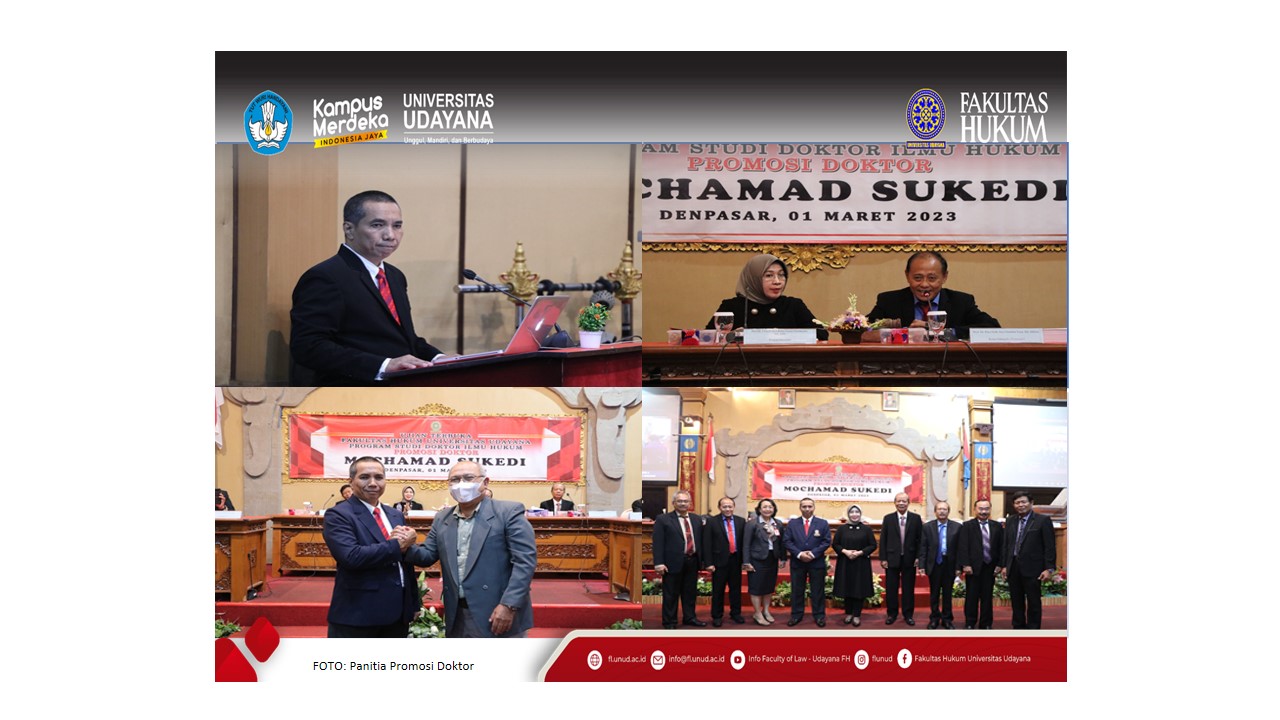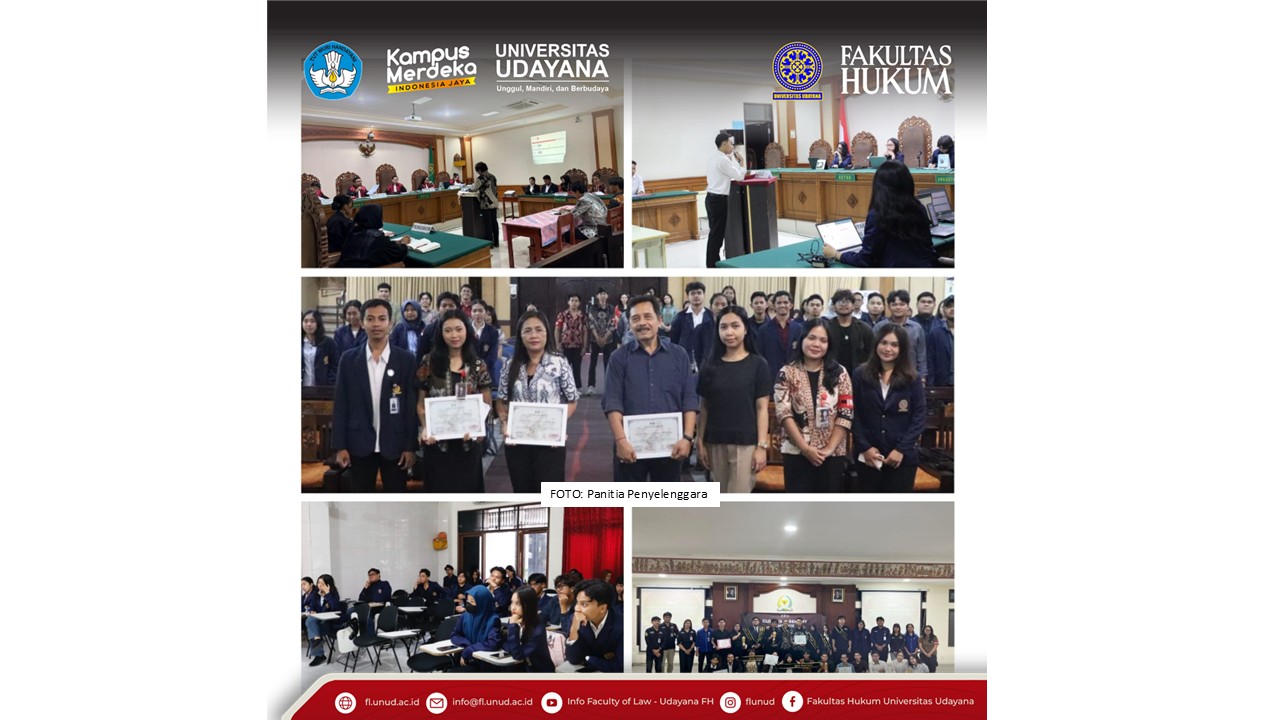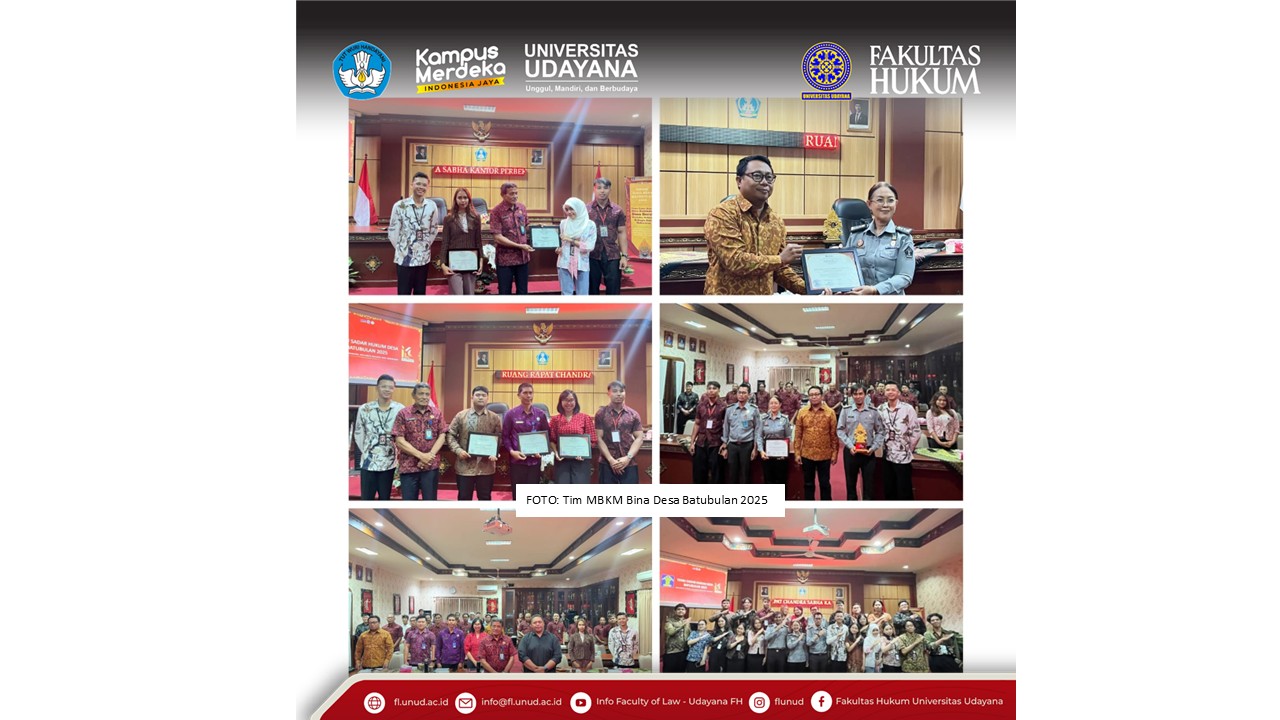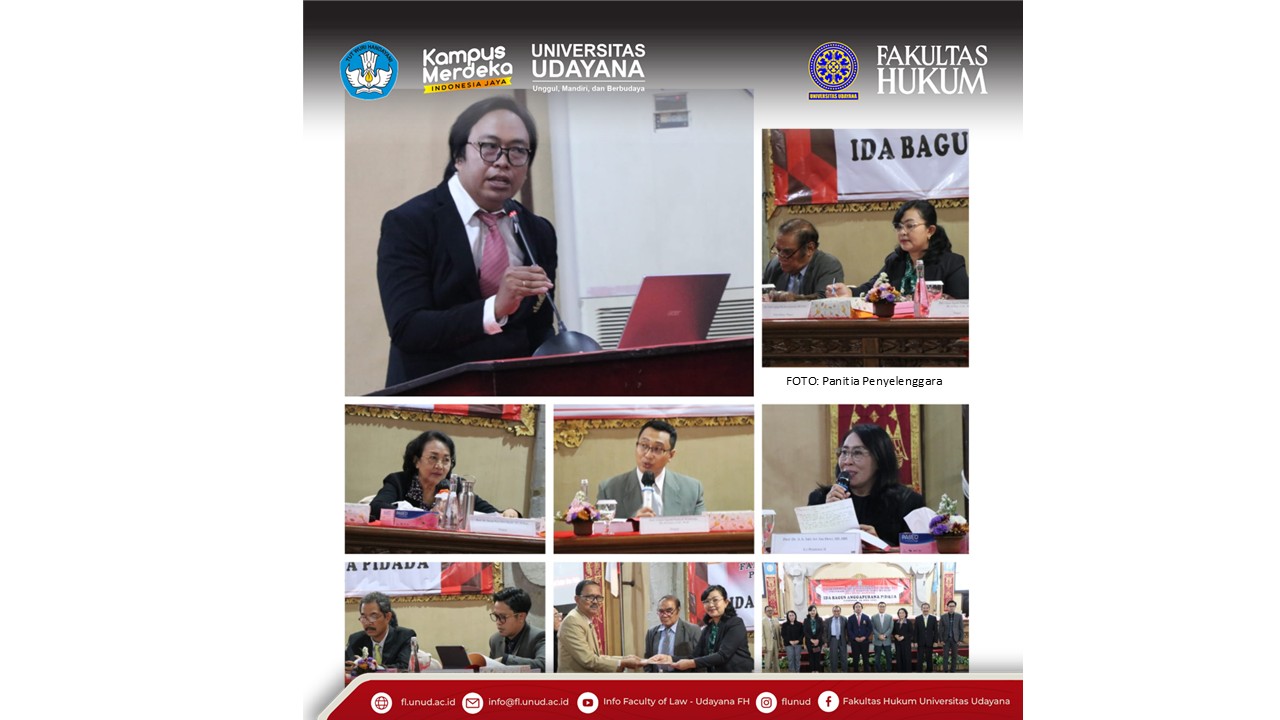Congratulations and Success Mochamad Sukedi New Doctor of Law Doctoral Program FH UNUD
Author: UPIKS Team FH UNUD | Editor: Md Suksma PDS
Denpasar, FLUNUD.ac.id - Mochamad Sukedi, an Advocate and educator at the Faculty of Law, Bali International University (FH UBI) Denpasar, continues his Doctoral education (S3) at the Doctor of Law Study Program, Faculty of Law, Udayana University (PDIH FH UNUD). And successfully earned his Doctorate through an Open Examination on Wednesday (01/03/2023) at the Hall of FH UNUD Denpasar Campus with a dissertation entitled "Urgency of Formulative Policy of Deferred Prosecution Agreement in Corruption Crimes Committed by Corporations."
The Open Examination lasted for 2 hours and was led directly by the Dean of FH UNUD and the Promoter Team: Prof. Dr. I Ketut Rai Setiabudhi, S.H., M.S., Prof. Dr. Putu Gede Arya Sumerta Yasa, S.H., M.Hum, Dr. Gde Made Swardhana, S.H., M.H, and presented an External Examiner from Sebelas Maret University Faculty of Law, Prof. Dr. I Gusti Ayu Ketut Rachmi Handayani, S.H., M.M as well as 3 other examiners / referees.
Mochamad Sukedi in his dissertation discussed the nature of the Deferred Prosecution Agreement (DPA) which aims to solve the problem of Corruption by corporations which is focused on the philosophy of the ultimum remidium, and is oriented towards efforts to return assets (asset recovery) or state financial losses. The Corruption Eradication Law (UU PTPK) regulates the responsibility that can be requested to the corporation and / or its management if there is a tipikor committed for the benefit of the corporation, by applying a cumulative-alternative system, namely criminal sanctions can be carried out against: 1). corporation and corporate management; 2). Corporation only; or 3) corporate management only. The concept of DPA formulative policy in tipikor committed by corporations in the future (ius constituendum) is very possible to be applied in Indonesia by relying on a paradigm that is focused on asset recovery or the return of state financial losses, while still referring to the Indonesian legal culture based on the noble values of Pancasila and adhering to the principles of the judicial trilogy: simple, fast and low cost.
Translated with www.DeepL.com/Translator (free version)




UDAYANA UNIVERSITY